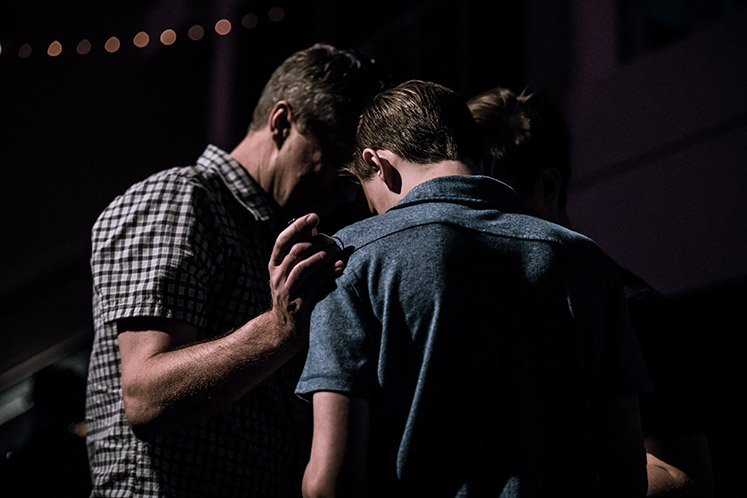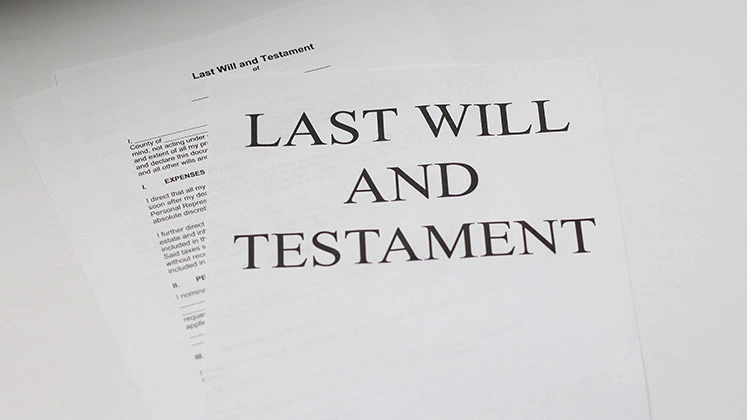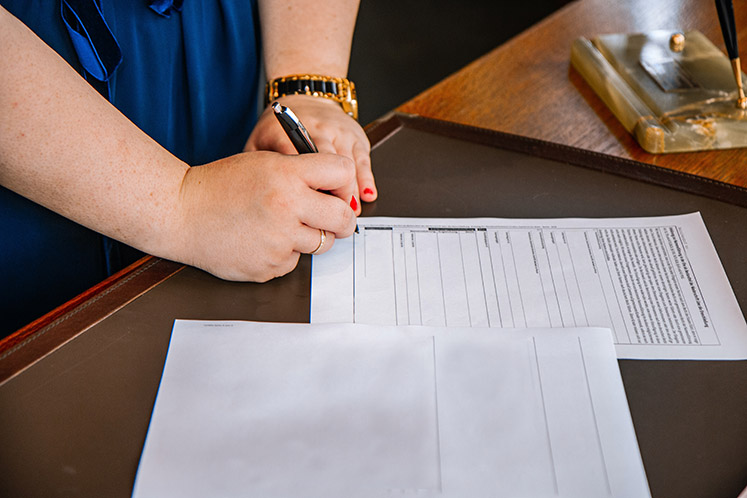Estate Planning
Planning for the future, no matter your age.

Many people, especially younger adults, think that they don’t need a will, trust, power of attorney, or any other kind of estate planning document. They believe that those things are only for the elderly or people in bad health and are simply not necessary for healthy folks in their 30’s, 40’s or 50’s.
They’re wrong. Estate planning is not just about having a will or trust. Instead, having a quality estate plan in place is like having good insurance: you hope you never need it, but it’s there in case the unexpected happens.
For example, let’s say you are married to your spouse and you have a child together. What would you want to happen to your assets if:
• Your spouse dies before you and your child is a minor?
• Your spouse dies before you and your child is an adult?
• You and your spouse die at the same time?
• You become incapacitated while your spouse is still alive?
• Your spouse becomes incapacitated while you’re still alive?
• You become incapacitated after your spouse dies? What if your child is a minor then?
• After both you and your spouse die, your child was an adult and was in a bad marriage or was sued?
• You and your spouse have been married before and have children from previous marriages, and one of you dies?
• You have a child with special needs who receives government benefits like Medicaid or Social Security?
This is just a small list of the issues and situations you need to consider. The number of questions to consider grows dramatically with the more children you have, the more assets you accumulate and the number of times you marry and re-marry.
A good estate plan makes sure that no matter what happens to you and your family, they will not only be provided for, but will have a road map to guide them through the tough times ahead.
CONTACT USEstate Planning Tools
Just like you can’t fix every problem around the house with a hammer, you can’t meet every person’s estate planning needs with the same basic will or power of attorney. Different jobs may require a wrench or a screwdriver, and different estate plans may require us to use a variety of tools from the estate planning toolbox. Here are a few general ones we use:
Power of Attorney: if you’re incapacitated (due to an accident, stroke, heart attack, dementia/Alzheimer’s or any other issue) and you’re not able to manage your own affairs, a Power of Attorney (or POA) names someone to step in and act on your behalf until you recover.
Most people think they don’t need a POA because their spouse of child has the power to manage everything. This is WRONG. Just because someone is married to you, or is your child, sibling, or related to you in any way, that doesn’t give them the legal right to make a variety of financial and health care decisions on your behalf if you’re incapacitated. Only a POA gives a person that right. If you become incapacitated and you don’t have a POA set up beforehand, it can be a nightmare for your family and loved ones.
Will: if you want to make sure your assets go to exactly who you want after your death, you need a will. A will dictates who will be in charge of managing your probate, who gets what and how much.
Just like with a POA, most people assume they don’t need wills because their spouses or children will automatically inherit everything, and just like with the POA, this is WRONG. Spouses and children don’t automatically inherit your assets after your death, especially if you have children from multiple marriages. Plus, different assets have different rules regarding how they can be inherited if there’s no will.
Bottom line: if you want to make sure your family and loved ones are provided for exactly how you’d like them to be, you need a will.
Trust: if you want to exercise a greater amount of control over your assets from beyond the grave, trusts can be a great option. Trusts allow you to say how your assets should be controlled over a long period of time after your death, instead of simply giving them to a loved one through a will.
For example, what if you have a child that you want to provide for, but you know is irresponsible and can’t handle money well? You don’t want to just leave him your bank accounts, because you know they’d be emptied within a week. Or, maybe you want to set aside money for your grandchildren so that they’ll receive regular income over a long period of time, instead of one lump sum when you die. Maybe you’re married to your second spouse, and want to make sure he’s provided for after your death while still making sure your children from your first marriage inherit something from you.
These are situations that trusts are perfect for. By using a trust as part of your estate plan, you can help simplify your estate and make sure that your family is taken care of, no matter what needs they may have after you’re gone.


This is not a do-it-yourself project.
You have probably seen or heard commercials for websites that allow you to create your own legal documents online. With something like this, why do you need an actual estate planning attorney when you can do it yourself and get a document cheaper and faster?
The answer is that these websites provide a product, but I provide a service.
What do I mean by that? Look at it this way: if the wiring in your house started shorting out, would you call a certified electrician to fix it, or look up instructions on the internet and start messing with the wires yourself? Common sense says that you should call the electrician, because even though you might be able to do the job yourself, there is also a good chance that something could go very, very wrong.
For the same reason, you should trust your estate planning to a licensed and experienced professional that can craft an estate plan tailored specifically to your situation, not to a website that gives you a one-size-fits-all piece of paper that cannot possibly offer the same amount of personal detail. It may be a little more expensive, but spending a bit more money now can save you tens of thousands of dollars in unexpected costs down the road.
I handle estate planning differently, and here’s how.
So, you’ve decided that a good estate plan makes sense for you and your family. Unfortunately, when many people go to an attorney for this service, they end up having the “traditional” estate planning experience:
1. They meet with an attorney who uses technical legal terms and makes the whole process sound more confusing than they thought it would be.
2. They sign the documents the attorney prepares for them without really understanding how they work, thinking that doing so will automatically take care of everything.
3. The attorney might mention changing the name on bank accounts or moving assets into a trust, but never follows up with them on this, so they forget to do it.
4. They put their documents away, check off “estate planning” on their mental to-do list, and never think about it again.
5. Years pass, family members grow up, move away, marry and re-marry, or die.
6. The law also changes over time.
7. Finally, something happens that causes them to reach for their estate planning documents, only to discover that they’re hopelessly outdated: their financial and living circumstances, family situation, and the law have all changed so much that the documents are effectively useless.
8. Not knowing what else to do, they call another attorney who charges them large amounts of money to try to help them out of a situation they thought they were safe from in the first place.
This is the “traditional experience” of estate planning, and it does not work.
I believe in doing things the right way.
I build estate plans with the needs of growing and changing families in mind. I help you prepare for the inevitable changes in life: children, grandchildren, a new house, retirement, insurance policies and so forth.
To do this, I don’t just provide you with an estate plan that will work should something happen to you or your loved ones tomorrow; I follow up and stay in contact with you to adjust your plan over time, so that your needs and goals, whatever they may be at the moment, are always met.
